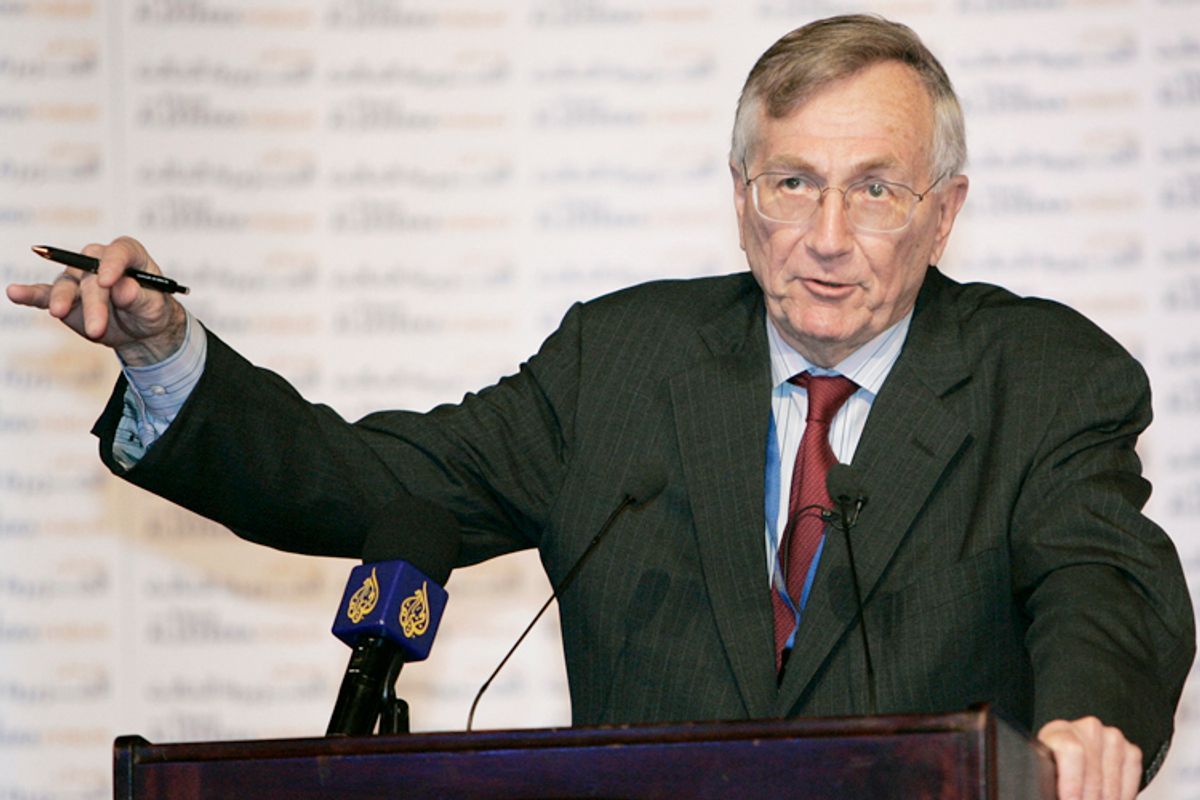On Wednesday, New York Times foreign correspondent Carlotta Gall, who has reported from Afghanistan and Pakistan, joined the chorus of journalists who chimed in in response to Sy Hersh's controversial exposé on Osama bin Laden's death, which argued that the White House had actually learned of bin Laden's location from a former Pakistani intelligence officer, who shared the information in exchange for a hefty sum. Many experts argued that the 10,000-word article relied too heavily on two retired sources, one of which remained anonymous. His report was also summarily rejected by former CIA officials as well as the White House.
However in "The Detail in Seymour Hersh's Bin Laden Story That Rings True," Gall actually defended Hersh's piece, noting that his story tracks with her in-depth reporting on the issue. When she was researching her book, "The Wrong Enemy: America in Afghanistan," she received similar information to Hersh's. She writes:
"I learned from a high-level member of the Pakistani intelligence service that the ISI had been hiding Bin Laden and ran a desk specifically to handle him as an intelligence asset. After the book came out, I learned more: that it was indeed a Pakistani Army brigadier -- all the senior officers of the ISI are in the military -- who told the C.I.A. where Bin Laden was hiding, and that Bin Laden was living there with the knowledge and protection of the ISI."
She continued to note that although she was never able to corroborate the information, Hersh "is following up on a story that many of us assembled parts of." Since Hersh's story was published, NBC News, Agence France-Presse and Pakistani paper The News have all reported similar accounts.
While Gall writes that she cannot confirm all of Hersh's claims ("for example, that two of Pakistan's top generals, Ashfaq Parvez Kayani, the former army chief, and Ahmed Shuja Pasha, the director of the ISI, had advance knowledge of the raid,"), she urges the public not to dismiss them altogether.
She concludes: "Hersh's claim that there was little or no treasure trove of evidence retrieved from Bin Laden's home rings less true to me. But he has raised the need for more openness from the Obama administration about what was found there."

Shares